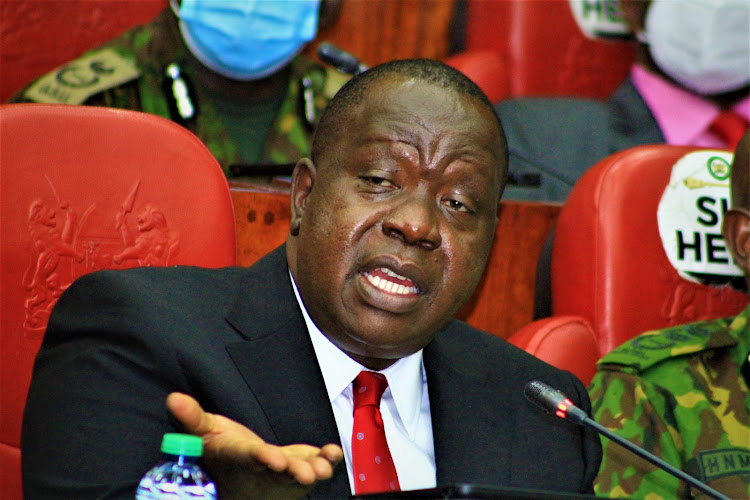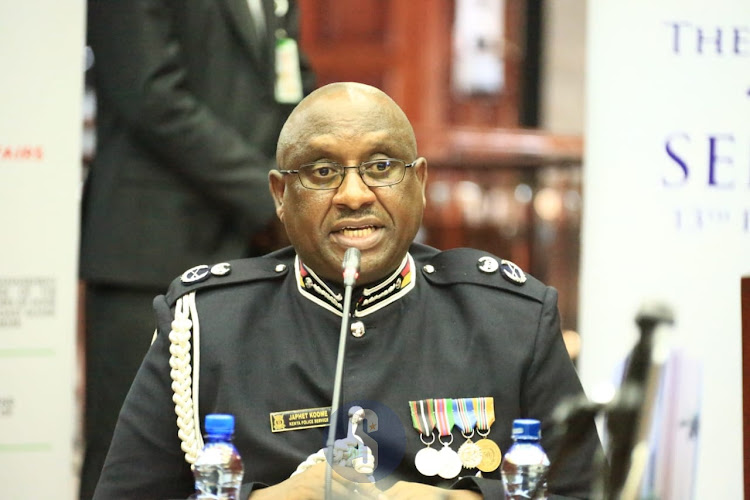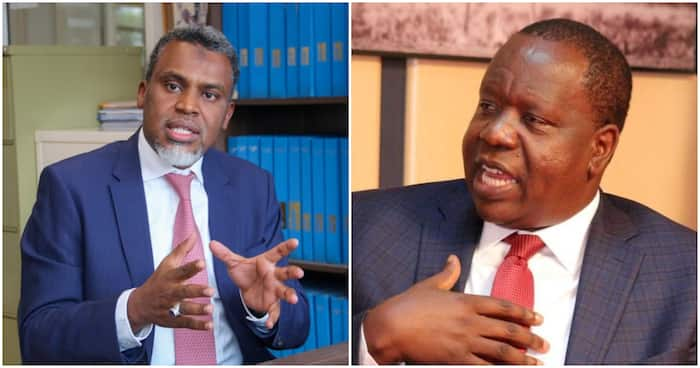The Office of the Director of Public Prosecution (ODPP) has directed the Office of the Director of Public Prosecution (ODPP) to close the criminal file against the former interior cs fred matiangi and his lawyer, Danstan Omari.
In a press release dated March 13, acting DPP Lilian Obuo stated that the investigating officer had suggested the duo be charged with two offences but that there was insufficient evidence to back up the claims.

"Upon independent and thorough analysis of the evidence availed and a review of the statements of the witnesses, the Director of Public Prosecutions found that the evidence provided was not sufficient to sustain the above charges against Dr. Fred Okeng'o Matiang'i and his advocate Mr. Danstan Omari," Obuo's statement reads in part.
"The evidence provided did not meet the ingredients needed to prove each of the afore-mentioned offences as required by law," Obuo's statement reads.
Did you read this?
According to the charge sheet by the Directorate of Criminal Investigation (DCI), Fred Matiangi was charged with attempting to instil fear, chaos, or violence among Kenyans by falsely claiming that his home had been raided by a special unity of officers seeking to arrest him.
Matiang'i is also charged with publishing false information violating Section 23 of the Computer Misuse and Cybercrimes Act.
Two weeks ago, Matiangi was detained at the DCI headquarters for questioning but was released hours later after questioning. His lawyer has also been summoned several times by the DCI. However, the law society of Kenya has condemned the summons saying that they violate lawyer-client privilege.

Last week the high court bared police officers from summoning the lawyer again, a move that the inspector general of police Japhet koome objects to. Koome claims that Omari has not presented any evidence to prove that he is or has been pressured to disclose privileged communication with his client Matiang'i.
"The police in their capacity as an investigative agency are statutorily permitted to summon any person for purposes of interrogations …..the summons to a person suspected of the commission of a criminal offence are constitutionally envisaged under Article 47(1), (2) as read together with Article 50(1)," court papers read.









